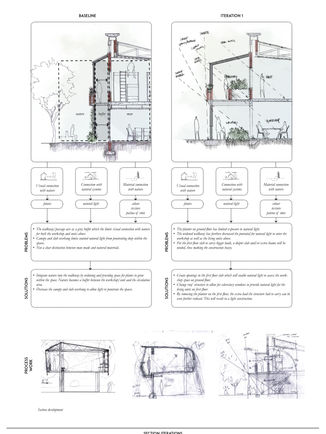Living Interface
Arcadia, Pretoria

How can architecture become a mediating platform between man and nature in order to improve the well-being of the homeless in Hatfield?
Project background
This project is a continuation of my third quarter’s project which dealt with homelessness within Hatfield. Apart from the social problem, ecological issues were also identified which according to Lorenzo Fioramonti, can be traced back to the global issue of short-sighted or preoccupied[bad] growth. This way of living has resulted in poverty , inequality as well as the depletion of our natural systems. Fioramonti argues that the only way to maintain and perserve our social and ecological assets and create a sustainable future for man is to place the well-being of man, nature and their relationship with each other at the centre of development. (Fioramonti, 2017).




Project aim
The aim of the project is to use architecture as a tool to re-establish a connection between man and nature in order to improve the well-being of the homeless in Hatfield. The design objectives aim to: 1) adopt a holistic approach to well-being, which suggests that a person is only truly well when physical, mental and spiritual needs have been fulfilled, 2) translate the concept of well-being into design criteria which will inform the programme, spatial organisation and architectural articulation, and 3) use biophilic design strategies to produce relevant spatial responses which promote a better connection with nature as well as to improve the well-being of user.













